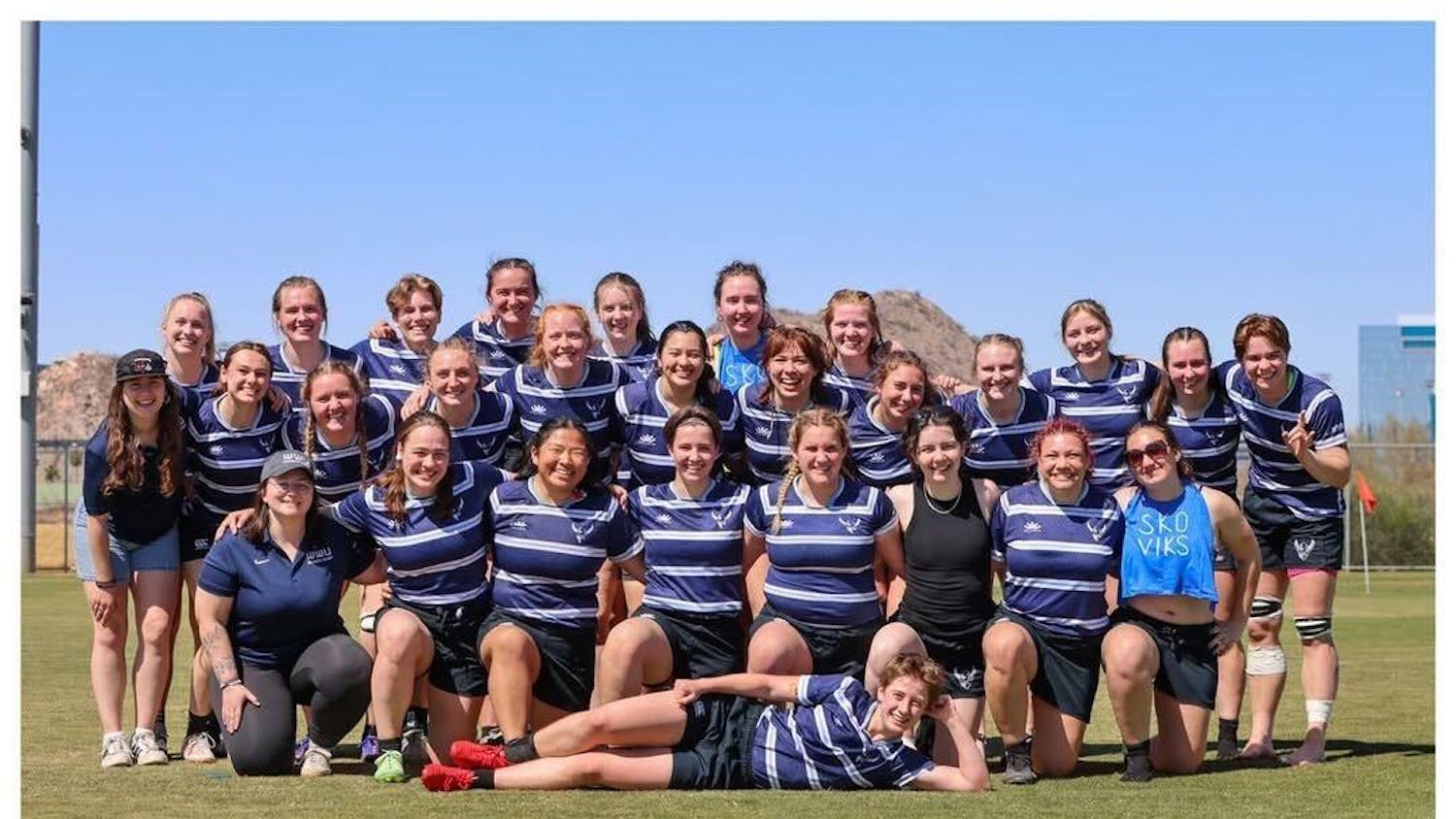As of writing this, I’m about to graduate from Western Washington University, and as I look back on the last four years of learning — and beyond — I’m recognizing ways I’ve grown as a person both personally and academically. I set out to write this piece as an amendment of sorts to a guest opinion I wrote for this publication back in August of 2022. I’ve come to appreciate the bigger ways I’ve evolved, learned to appreciate this evolution by holding myself accountable, but also accepted my own limitations.
While at Western, I received opportunities that changed my life and expanded my worldview. I took a range of classes, like a senior seminar on refugees and a history capstone on Indigenous peoples of the Pacific Northwest. I was a Hillel board member; I helped lead the Model UN team, and I served as the editor-in-chief of this very publication.
These experiences have, I hope, made me both more curious and more sophisticated in reflecting on the values I hold and how I act on them. However, I still struggle with regret over the past.
To cut to the chase, one thing I would have done differently is how I went about writing a piece for The Front in August 2022 criticizing the foreign policy of U.S. President Joe Biden, focusing on the withdrawal from Afghanistan. In short, while I think the core values of the article are defensible, the way I worded portions of the article weakens the argument. As I’ve grown as a writer and a journalist, I’ve tried to be more careful about how I write. Let me elaborate by pointing out a couple of instances in the piece where I think I got it wrong.
The beginning of my piece called out the Biden administration’s posture towards Saudi Arabia — a criticism I stand by. The bulk of it, however — and the part I’ve thought the most about — is my discussion of the U.S.'s 20-year-long war in Afghanistan.
Near the beginning of this section, I attempted to acknowledge criticism of the war in Afghanistan while simultaneously pointing out that the Taliban was worth opposing. I wrote that I wasn’t trying to “defend any and all missteps and misdeeds” the United States was involved in during its war. “Missteps and misdeeds” is of course an understatement. U.S. forces were ultimately unsuccessful in their campaign and the effort to reconstruct Afghanistan became subjected to systemic corruption, as various warlords and strongmen continued to exercise outsized influence on the country. Furthermore, the United States campaign of airstrikes targeting Taliban forces killed civilians all too often — and this is credited with helping the resurgence of the Taliban in rural areas.
I was attempting to focus the article on my frustration with the Biden administration and the optics of allowing the Taliban (a major human rights violator) to take control with what seemed like diminished concern for the human rights of Afghans. That said, the language I used almost came off as dismissive – which was inappropriate, given the gravity of the subject matter.
Additionally, I claimed “the facts are” that the war in Afghanistan was fought with “explicit support from and cooperation with the Afghan people.” I do remember exactly what I’m referencing here – it was a survey showing that around 50% of Afghans wanted a withdrawal of U.S. troops after a peace deal with the Taliban was signed. I took this to imply that Afghans did not want the withdrawal unless that condition was met. In my mind, I was highlighting Afghan support so I could re-center Afghans as the principal stakeholders in what people too often view as a U.S.-only war.
I don’t think this point is totally invalid, but I completely disagree with how I phrase my interpretation of this survey. To take data points from a single study (if I was even interpreting it correctly) and imply that an entire people — 40 million — “explicitly” support a particular political program and military campaign is recklessly reductive at best. Additionally, today I wouldn’t have characterized my interpretation of this survey as a “fact.” Even in an opinion piece, that doesn’t meet my personal standards for good journalism or good analysis.
If I wrote this piece today, I would try and focus more on centering Afghan voices more directly — both from what Afghan leaders themselves have said, and what human rights organizations have conveyed. Many Afghans feel, in the words of former Afghan women’s affairs minister Hasina Safi, “abandoned” by the international community, as the Taliban consolidate a brutal authoritarian regime that has systematically stripped Afghan women of their basic human rights.
From this perspective, I would emphasize my criticism of the Trump administration’s decision to cut out the Afghan government and negotiate a withdrawal directly with the Taliban. Again, this was not a situation just concerning the United States. It concerned Afghans too.
I feel more confident in my later criticism of the Biden administration for not doing enough to engage with Palestinians — this lack of engagement has of course continued and worsened during Israel’s current campaign in Gaza. I also stand by criticizing the administration for continuing Trump-era policies such as recognizing Moroccan sovereignty over Western Sahara. Since this article’s publishing, the U.S. has sanctioned Myanmar’s oil exports, but my criticism was still valid at the time.
Given that I still support the core of what this article lays out, why do I feel so bad about it?
The piece represents a particular stage in my development as a writer and a student. Perhaps the specific mistakes I made have colored my whole perception of my thought process. We’re our own worst critics, after all — and as you can probably tell, I sometimes cringe at my past self.
But I cringe at a lot of things, and writing this opinion piece was educational. That spring and summer quarter, I transitioned from my previous four months of news writing to something stylistically different. I learned a lot writing this piece and from all the reflecting I’ve done since.
I’ve had the opportunity to take coursework on foreign policy that has strengthened my ability to write on these multidimensional issues and learned how to more rigorously back up claims that I make. I’ve also honed my writing skills in successive journalism and broader humanities courses, making me more adept at using precise language to make my points clearly understandable, rather than unnecessarily drawing broad strokes.
What I can recognize in this piece — and what I can recognize in a lot of things in my college experience — is that a lot can change, but I can focus on retaining values (say, human rights) that are really important to me while shedding things I’ve grown from.
What’s really crucial is also recognizing that life, especially at our age, is a work in progress. It’s likely at some point in the future I’ll feel like I could have better worded a part of this very piece you’re reading. But, if I can move forward — recognizing that I can always find ways to grow from inevitable mistakes while holding myself accountable — then I’ll keep on learning throughout my life, long after Western.
Finn Kurtz (they/he) is the Opinion and Outreach Editor of The Front for summer quarter. He is a history and political science double major and a journalism/news editorial minor in their fourth year at Western. In his free time, he enjoys looking in bookstores, going on walks in the woods, and trivia.
They can be reached at finnkurtz.thefront@gmail.com.






